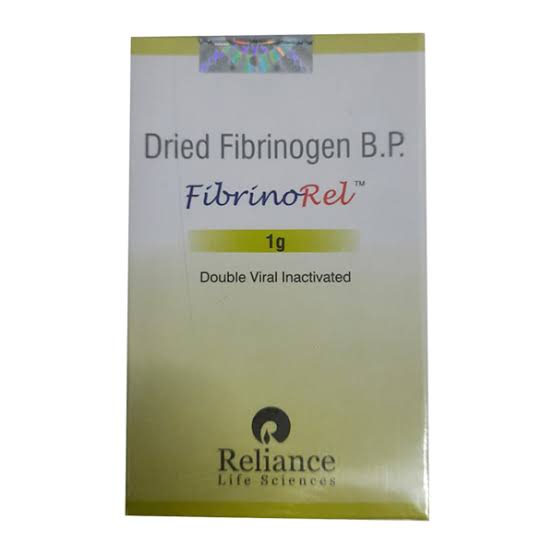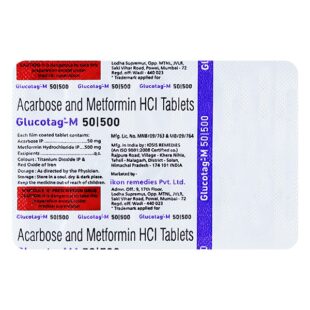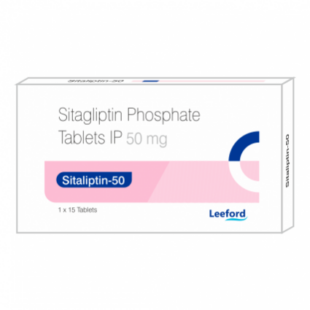- Your cart is empty
- Continue Shopping
Fibrinorel 1gm Injection
₹15,500.00
Uses of Fibrinorel 1gm Injection
- Fibrinogen replacement therapy for bleeding disorders
- Coagulation management in liver diseases
- Disseminated intravascular coagulation (DIC)
- Afibrinogenmia
- Hypofibrinogenemia
Out of stock
Introduction to Fibrinorel 1gm Injection
Fibrinorel 1gm Injection contains an active component called as human fibrinogen. It treats bleeding episodes in people with a congenital Fibrinogen deficiency. These deficiencies can be caused by genetic mutations or by liver disease. It can be used as an adjunct to hemostasis (blood clotting) in adults undergoing surgery when control of bleeding by standard surgical techniques is ineffective or impractical. It is also used to help stop the bleeding and prevent further blood loss in cases of massive hemorrhage. It can be given to women who risk delivering their babies prematurely. It is also used in patients with acquired fibrinogen deficiency, which can be caused by liver disease, disseminated intravascular coagulation (DIC), afibrinogenemia, hypofibrinogenemia or other conditions that damage the liver or interfere with its production.
If you have had an allergic reaction to Fibrinorel 1gm Injection or other blood products in the past, you should not receive it. It should not be given to people who are already actively bleeding. This is because it can increase the risk of forming a blood clot. If you have a history of thrombosis, you should not receive this medication without careful consideration. Special considerations are needed when administering this medication to pediatric and geriatric patients, including dosage adjustments based on age and weight and close monitoring.
Therapeutic Effects of Fibrinorel 1gm Injection
Fibrinorel 1gm Injection molecules are converted into fibrin by the enzyme thrombin. Fibrin strands form a meshwork, trapping blood cells and creating a stable blood clot at the site of injury or bleeding. This clot helps to staunch bleeding and promote wound healing. The missing Fibrinorel 1gm Injection enhances the body’s ability to form these essential blood clots, preventing excessive bleeding in individuals with Fibrinorel 1gm Injection deficiency disorders.
Interaction of Fibrinorel 1gm Injection with other drugs
Inform the doctor about your medicines, including prescription, over-the-counter, nutritional or vitamin supplements, and herbal products. Certain medications may interact with Fibrinorel 1gm Injection, reducing effectiveness by causing undesirable side effects.
More Information about Fibrinorel Injection
- Stored at room temperature from 2°C to 8°C.
- Keep away from moisture, heat, and light.
- It should not be frozen.
- Keep away from children and pets.
How to consume Fibrinorel Injection
Fibrinorel Injection can be administered through several routes, including intravenous (IV), intramuscular (IM), and, in some cases, intraarterial (IA). The healthcare provider determines the choice of administration route based on the patient’s needs and the urgency of treatment.
Safety Advices for Fibrinorel Injection
Pregnancy
Consult your doctor
There is not enough information about the safety of Fibrinorel Injection concentrates in pregnant women. So consult your doctor before using it.
Breast Feeding
Consult your doctor
Fibrinorel Injection concentrate is generally safe to take while breastfeeding. However, talking to your doctor before taking any breastfeeding medication is important.
Lungs
Consult your doctor
Before using Fibrinorel Injection in individuals with lung conditions, consult with a healthcare provider if you have lung conditions.
Liver
Consult your doctor
If you have liver conditions, consult a healthcare provider before using Fibrinorel Injection.
Alcohol
Unsafe
It is not safe to take Fibrinorel Injection with alcohol. Alcohol can interfere with how Fibrinorel Injection works and increase the risk of bleeding.
Driving
Consult your doctor
If you have Fibrinorel Injection deficiency and you need to drive, it is important to talk to your doctor. Your doctor may recommend that you take it before driving.
Side Effects of Fibrinorel Injection
Fibrinorel Injection causes some side effects like all medications, although not everyone will experience them.
Serious
- Allergic Reactions
- Transfusion-related acute lung injury (TRALI)
- Transfusion-associated circulatory overload (TACO)
- Transfusion-transmitted infections
- Thrombosis
- Fluid overload
Common
- Fever
- Chills
- Flushing
- Nausea
- Headache
- Mild allergic reactions (itching, hives)








Reviews
There are no reviews yet.